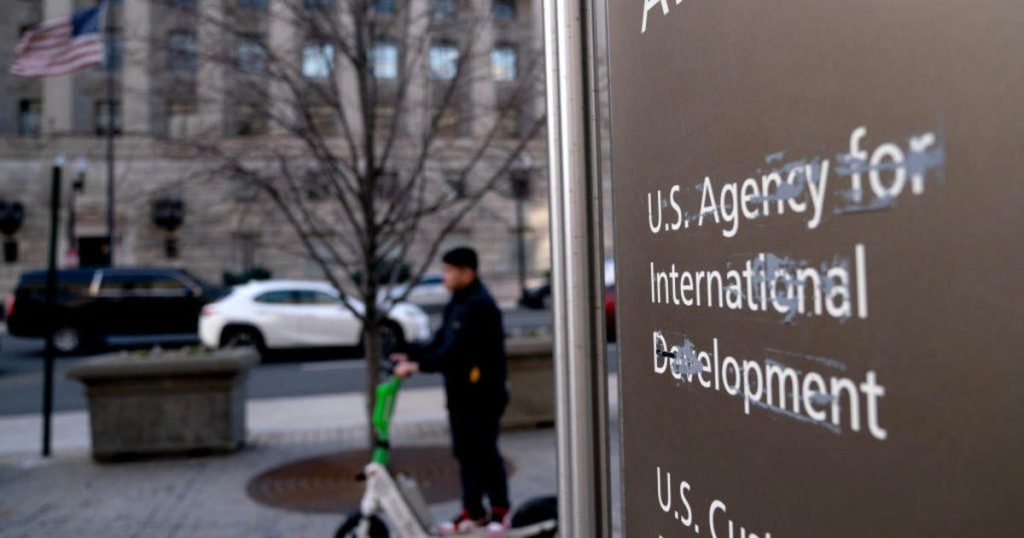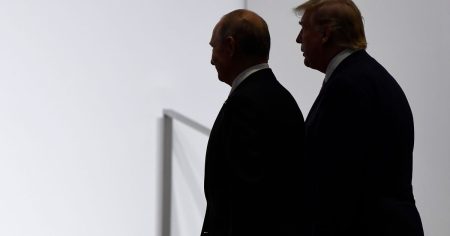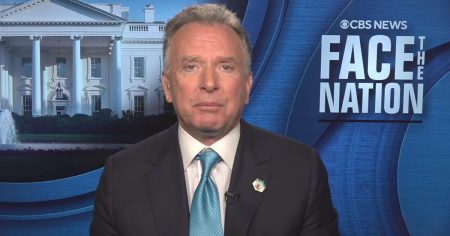President Trump Fires USAID Inspector General Amid Controversy
President Trump has sparked controversy by firing the inspector general for the United States Agency for International Development (USAID), Paul Martin. The unexpected dismissal came just one day after Martin’s office released a critical report detailing the consequences of the Trump administration’s funding cuts to USAID. According to sources familiar with the matter, Martin was informed of his termination via a brief, two-sentence email from Trent Morse, a deputy director at the White House’s Office of Presidential Personnel. No reason was provided for the sudden firing.
Martin, who was appointed by President Joe Biden and had led the inspector general’s office since December 2023, played a key role in overseeing USAID’s operations. His office’s recent report highlighted the damaging effects of the administration’s efforts to slash funding and shut down USAID. The report revealed that these cuts had severely impaired the agency’s ability to deliver and protect taxpayer-funded humanitarian aid. Investigators found that nearly $500 million in food assistance was at risk of spoilage due to bottlenecks in ports, ships, and warehouses caused by the funding reductions.
Fallout and Reactions Within USAID
The firing of Paul Martin has sent shockwaves through USAID, with employees expressing concerns about the future of the agency’s oversight. While no other staff members in the inspector general’s office were immediately placed on leave, employees were informed on Tuesday that they no longer had access to their office in the Ronald Reagan building. The General Services Administration confirmed that USAID’s lease in the building had been terminated over the weekend, further complicating the situation.
In an email to his colleagues, Martin expressed his gratitude for the opportunity to serve alongside his team and emphasized the importance of their work. He wrote, "It has been a true honor and pleasure to walk alongside my OIG colleagues around the world as we sought to provide independent and aggressive oversight of USAID programs and personnel." Martin also announced that the assistant inspector general for investigations would take over as the acting inspector general, ensuring some level of continuity in the office’s operations.
Broader Context: A Pattern of Retaliation?
This is not the first time President Trump has faced criticism for firing inspectors general without explanation. Shortly after his inauguration, Trump dismissed at least 17 other inspectors general, raising concerns among lawmakers and transparency advocates. Democrats, and even some Republicans like Senator Chuck Grassley, have called on the administration to provide a rationale for these firings, citing federal laws that require a justification for such actions. The pattern of dismissals has led to accusations that Trump is targeting individuals who oversee government accountability and transparency.
Martin’s firing is part of a larger trend under the Trump administration. Earlier in the week, the president also ousted David Huitema, the director of the Office of Government Ethics, further fueling concerns about the administration’s commitment to ethical governance. These moves have raised alarms among lawmakers and watchdog groups, who argue that such actions undermine the independence of critical oversight bodies and weaken accountability within the federal government.
Implications for USAID and Global Aid Efforts
The firing of Paul Martin and the shutdown of USAID’s operations have significant implications for the agency’s ability to deliver humanitarian assistance worldwide. The inspector general’s office played a crucial role in ensuring that taxpayer-funded aid was being used effectively and efficiently. Without strong oversight, there is a heightened risk of mismanagement, waste, and abuse of resources.
The report released by Martin’s office painted a dire picture of the consequences of the administration’s cuts. With nearly $500 million in food aid at risk of spoilage, the potential for wasted resources is staggering. This not only undermines the effectiveness of U.S. foreign aid but also jeopardizes the lives of people around the world who rely on this assistance. The inspector general’s findings serve as a stark reminder of the importance of maintaining robust oversight in government agencies.
A Call for Transparency and Accountability
The firing of Paul Martin has reignited calls for greater transparency and accountability within the Trump administration. Lawmakers and advocates argue that inspectors general are essential for ensuring that government agencies operate with integrity and that taxpayer dollars are used appropriately. By dismissing these officials without explanation, the administration is sending a concerning message about its commitment to ethical governance.
As the 2024 presidential election approaches, issues of accountability and transparency are likely to take center stage. The firing of Martin and other inspectors general has highlighted the need for stronger protections for oversight officials and a clearer explanation for such dismissals. Without these safeguards, the ability of the federal government to operate with integrity and effectiveness will continue to be at risk.
Conclusion: The Future of Oversight in the Federal Government
The dismissal of Paul Martin serves as a stark reminder of the importance of independent oversight in the federal government. Inspectors general like Martin play a vital role in holding agencies accountable and ensuring that taxpayer dollars are used wisely. Their work is essential for maintaining public trust in government institutions and for identifying and addressing waste, fraud, and abuse.
As the Trump administration continues to face scrutiny over its handling of oversight officials, the broader implications for the future of accountability in government cannot be ignored. The firing of Martin and other inspectors general raises serious questions about the administration’s commitment to transparency and ethical governance. Moving forward, it is crucial that lawmakers and the public remain vigilant in advocating for the independence and integrity of these critical oversight bodies.















